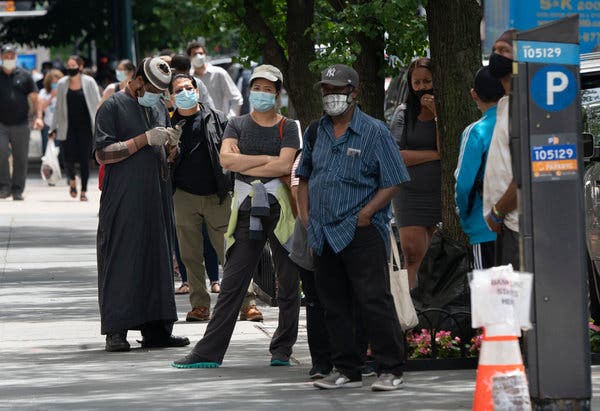Around 3.5 million unemployed Americans stand to lose their benefits as a growing number of Republican governors are ending their participation in the government’s aid program.
The move appears to have been prompted by the negative nature of the April jobs report as well as anecdotal evidence that more people would rather stay on aid instead of going back to work or seeking new employment.
According to Andrew Stettner, a senior fellow at the Century Foundation, approximately 3.5 million people may lose their unemployment benefits.
Based on estimates, Stettner opines that 1.5 million of those who will be adversely affected are currently enrolled in the Pandemic Unemployment Assistance (PUA) program, while 1.3 million are enrolled in other federal programs specifically focused on giving aid to those who have been unemployed for a long time.
An additional 850,000 individuals receive benefits directly from their home state and may stand to lose only $300 in federal supplements.
Rethinking unemployment aid
At present, there are several ways by which the unemployed can get aid from the federal government. The best known is a supplemental payment of $300 that is tacked onto state payouts.
Since the pandemic hit the country in the first quarter of 2020, businesses have had to curtail operations and lay people off. As a result, millions currently rely on programs like PUA which was a way of serving aid to those who would not usually quality for unemployment assistance, including freelancers and others who relied on gigs for a living.
The withdrawal of GOP states from such programs essentially cuts off their income.
Texas Governor Greg Abbott announced on May 17 that his state would end the distribution of federal unemployment benefits on June 26th. This makes Texas the largest state to end its participation, withholding nearly $8.8 billion in aid to nearly 1.3 million resident workers.
Abbott rationalized Texas’ withdrawal from aid programs by stating that the number of job openings currently available in the state is practically equal to the number of Texans receiving federal financial assistance. As of March 2021, the Texan unemployment rate was pegged at 6.9%, nearly double that of February 2020.
Is it too early to end aid?
Numerous politicians, Democrats and Republicans alike, have called out GOP states who decided to go for an early end to the distribution of unemployment benefits.
The sentiment is echoed by labor advocates across the country who feel that the Labor Department should continue paying out PUA under the stipulations of the Coronavirus Aid, Relief, and Economic Security (CARES) Act.
Vermont senator and current chair of the Senate Budget committee Bernie Sanders has written to Labor Secretary Marty Walsh, urging that the current administration must intervene and ensure that PUA is still distributed to the unemployed.
As of press time, however, there has been no action either from the White House or the Labor Department, nor have any statements been issued in relation to the matter.
However, it should be noted that unemployed workers in states that have declared their intention to end aid programs may find themselves shortchanged should they choose to go back to work. At present, seven states have not increased the minimum wage since 2009 when the $7.25 federal minimum wage was enacted.
Of those seven states, six have declared their early termination of federal unemployment aid programs.














